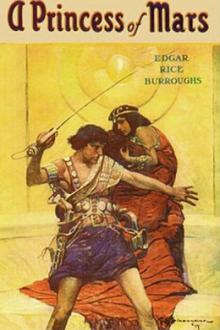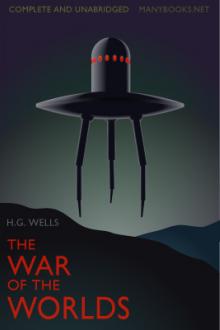Genre - Science Fiction. You are on the page - 32

ore to share our meal. To satisfy my conscience, I ate for both.The old cook and housekeeper was nearly out of her mind. After taking so much trouble, to find her master not appear at dinner was to her a sad disappointment--which, as she occasionally watched the havoc I was making on the viands, became also alarm. If my uncle were to come to table after all? Suddenly, just as I had consumed the last apple and drunk the last glass of wine, a terrible voice was heard at no great distance. It was

Inside, her anxiety increased. The arrangements were old-fashioned and rough. There was even a female attendant, to whom she would have to announce her wants during the voyage. Of course a revolving platform ran the length of the boat, but she was expected to walk from it to her cabin. Some cabins were better than others, and she did not get the best. She thought the attendant had been unfair, and spasms of rage shook her. The glass valves had closed, she could not go back. She saw, at the end

however, that this thought did not occur to me until the following day removes any possible right to a claim to heroism to which the narration of this episode might possibly otherwise entitle me.I do not believe that I am made of the stuff which constitutes heroes, because, in all of the hundreds of instances that my voluntary acts have placed me face to face with death, I cannot recall a single one where any alternative step to that I took occurred to me until many hours later. My mind is

hey reachtheir fifteenth year. Then they go to work.In the Home of the Students we arose whenthe big bell rang in the tower and we wentto our beds when it rang again. Before weremoved our garments, we stood in thegreat sleeping hall, and we raised our rightarms, and we said all together with thethree Teachers at the head:"We are nothing. Mankind is all. By the graceof our brothers are we allowed our lives.We exist through, by and for our brotherswho are the State. Amen." Then we

same day another important personage fell into the hands of the Southerners. This was no other than Gideon Spilen, a reporter for the New York Herald, who had been ordered to follow the changes of the war in the midst of the Northern armies.Gideon Spilett was one of that race of indomitable English or American chroniclers, like Stanley and others, who stop at nothing to obtain exact information, and transmit it to their journal in the shortest possible time. The newspapers of the Union, such as

o recall some of the mental habits of those departed days. At most terrestrial men fancied there might be other men upon Mars, perhaps inferior to themselves and ready to welcome a missionary enterprise. Yet across the gulf of space, minds that are to our minds as ours are to those of the beasts that perish, intellects vast and cool and unsympathetic, regarded this earth with envious eyes, and slowly and surely drew their plans against us. And early in the twentieth century came the great